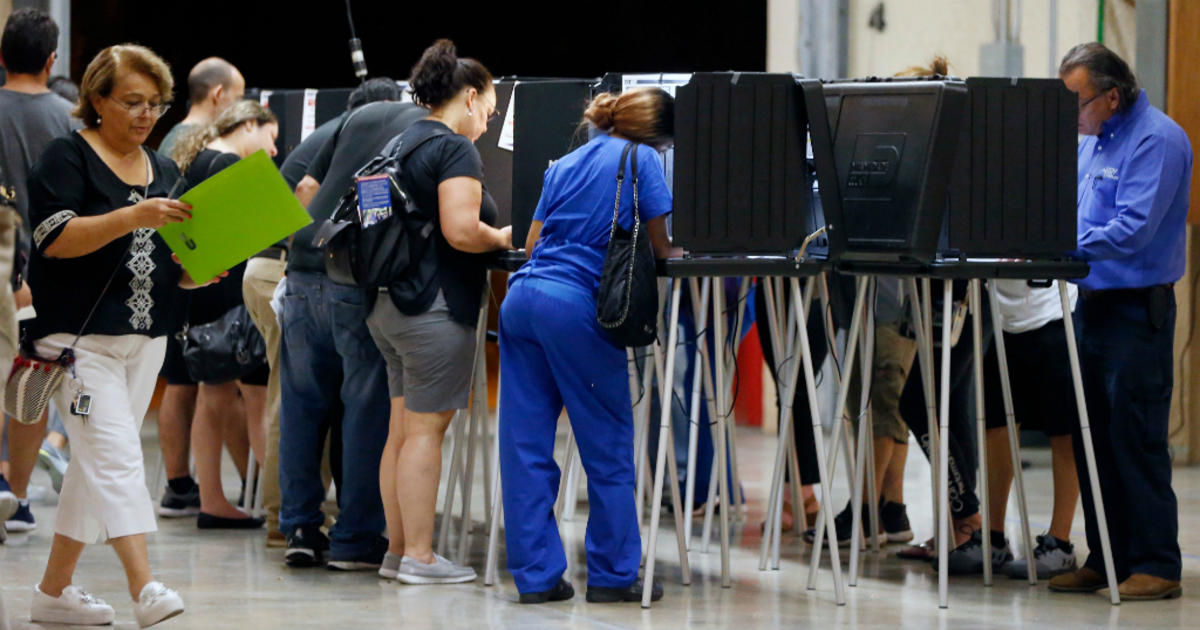Senate Considers Options For Redistricting Maps
TALLAHASSEE (CBSMiami/NSF) – State Senators are back at work in a special session trying to come up with a way to fix their redistricting map so it meets the approval of Florida's Supreme Court which threw out their first version.
On Wednesday Senate leaders reiterated their stance that the Supreme Court affirmed the lion's share of the Senate map by specifically citing just eight districts in its ruling. Any changes are likely to be narrowly aimed at fixing those districts, they said.
"If you know that 32 seats have met the criteria, why upset those 32 if you possibly can (avoid it)?" said Senate President Mike Haridopolos, R-Merritt Island.
But the chamber was also colliding with the reality that any change to the eight districts singled out are likely to ripple across the state, as the requirement that districts be relatively equal in size means that adjustments in one set of lines will cause another to shift.
Democrats have insisted that simply tweaking the existing maps won't do the job.
"Just because facially, the court didn't say that this district or another district had some issues doesn't mean that there aren't some issues there that we could not possibly address," said Sen. Nan Rich, D-Weston.
Aside from the incumbents who could see their lines significantly altered, the thorniest potential issue was how to unwind a system for numbering districts that justices also found unconstitutional. All 40 Senate districts are up for re-election this year, meaning that some senators will be elected to two-year terms and some to four-year terms.
But because of the way the state's term-limits laws work, the districts can be numbered in such a way that most members of the chamber could serve for up to 10 years -- longer than the constitutional, eight-year limit for lawmakers. The system adopted by the Senate, which would have allowed that, was struck down by the court for favoring incumbents.
The question now is how to allocate the numbers. Among the alternatives being weighed by the Senate: numbering the districts to ensure no one serves more than eight years; arranging numbers randomly, at least in relation to the odd-even split that determines the length of terms won in 2012; using geography to decide the numbers; or finding some other "orderly pattern" to assign them.
Members seemed divided on the question.
Sen. Gwen Margolis, D-North Miami Beach, advocated trying to limit extra time as much as possible, because of the intent of term limits.
"It seems to that the people voted for 'Eight is Enough,' and that's probably what we should be looking at," Margolis said.
Others were less certain. Sen. Bill Montford, D-Tallahassee, complained that giving four-year terms to lawmakers who got only two in the 2010 elections, could also fatigue voters if they had to return to polls again in 2014.
"It's not just the incumbent that I think we should focus on, but it's the question of the community and citizens themselves," Montford said. "How many elections should they have to endure?"
House members met briefly Wednesday but will not return again until the week of March 26 to approve a redistricting plan. Redistricting Chairman Will Weatherford, R-Wesley Chapel, said his committee could meet March 26, with the plan going to the full House the following two days.
The News Service of Florida contributed to this report.



